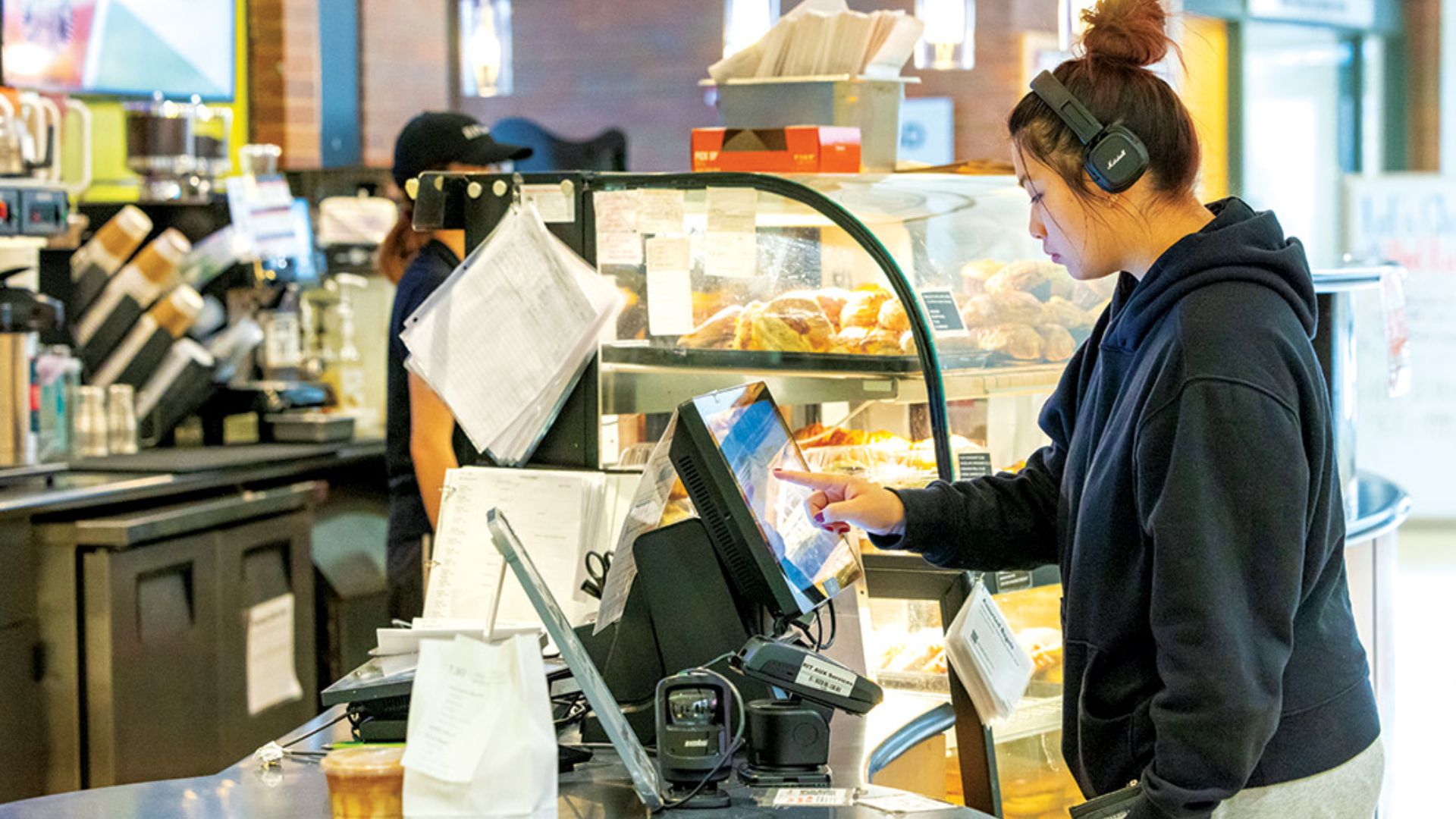Local News
Students at NTID develop innovative self-service kiosks that improve food ordering access for deaf and hard-of-hearing individuals on RIT campus

Rochester, New York – A group of talented students from the National Technical Institute for the Deaf (NTID) have turned a classroom idea into a practical solution that’s changing the way food is ordered at Rochester Institute of Technology (RIT). Through a capstone project, they developed and introduced new touchscreen kiosks that make it easier for deaf and hard-of-hearing students to place and pick up food orders on campus.
The new system replaces an outdated method that created communication challenges. In the past, RIT Dining staff would call out ready orders by voice, a process that became even more difficult when employees wore masks during the pandemic. This made it hard for deaf students to know when their food was ready, often leaving them frustrated and dependent on others for help.
The newly installed kiosks, now in use at several campus dining spots, use interactive monitors that allow customers to place orders with ease. These screens, combined with printed receipts and visual cues, make the experience smoother and more accessible for everyone. For deaf students, the changes have been immediate and meaningful.
“It’s a lot easier for me to enter my order on the kiosk, which prints it out on paper, rather than trying to communicate by mouth or using sign language,” said Luke Chrzan, a second-year motion picture science student from Middletown, New Jersey. “It’s not only efficient for us as students trying to hustle to classes, but for the employees who don’t have to slow down trying to figure out a customized order.”
The project took nearly two years to come to life. It began with a small grant from NTID, which allowed students to start building a prototype. Working under the guidance of Professor James Mallory, the team put their classroom learning into action. They created hardware lists, mapped out user interactions, and even handled the paperwork needed to secure funding.
“By tackling real-world challenges, students gained hands-on experience in problem solving, prototyping, and technical development—skills essential in the IT workforce,” Mallory said. “They learned to secure funding, adapt to setbacks, and collaborate with stakeholders, mirroring the innovation and troubleshooting required in IT-focused careers. This project with RIT Dining strengthened their technical expertise and helped prepare them to create meaningful solutions in their future technical roles.”
The student team worked closely with RIT Dining Services to make sure the final product would actually work in a busy food service environment. Their goal was to make something simple, intuitive, and reliable—and the results speak for themselves.
Five of these kiosks are now operational at three campus dining locations, including The College Grind, a popular spot for coffee and snacks. For many student workers there, the kiosks have been a game-changer.
“I believe these automated kiosks have been extremely beneficial for me as a student worker,” said Melissa Xie, a second-year advertising and public relations major from Queens, New York. “Having these kiosks allows for customers to order at their own pace as well as helps them visualize the drinks and foods they are ordering with the images the kiosk provides.”
The success of the kiosks highlights how inclusive design can improve everyday life—not just for people with disabilities, but for everyone. What started as a classroom project now serves hundreds of students every day, streamlining service, cutting down on confusion, and fostering a more welcoming environment.
The NTID students involved in the project not only created a tool that benefits their peers—they also walked away with valuable real-world experience. From writing grant applications to dealing with setbacks in design and hardware implementation, they gained insight into how tech solutions are built and deployed in the real world.
As more colleges and businesses look to make their services more accessible, the work done by these NTID students could serve as a blueprint. For now, the RIT community is already reaping the benefits of this student-led innovation—proof that sometimes the best ideas come from the people living the challenges firsthand.

-

 Local News12 months ago
Local News12 months agoNew ALDI store close to Rochester to begin construction in late 2025 or early 2026
-

 Local News12 months ago
Local News12 months agoRochester Lilac Festival announces exciting 127th edition headliners
-

 Local News10 months ago
Local News10 months agoCounty Executive Adam Bello and members of the county legislature celebrate exceptional young leaders and advocates at the 2025 Monroe County Youth Awards
-

 Local News10 months ago
Local News10 months agoThe 2025 Public Market Food Truck Rodeo series will begin this Wednesday with live music by the Royal Bromleys